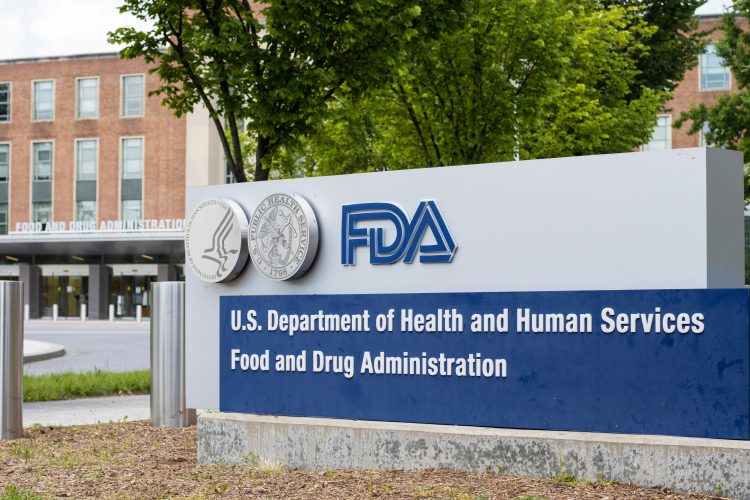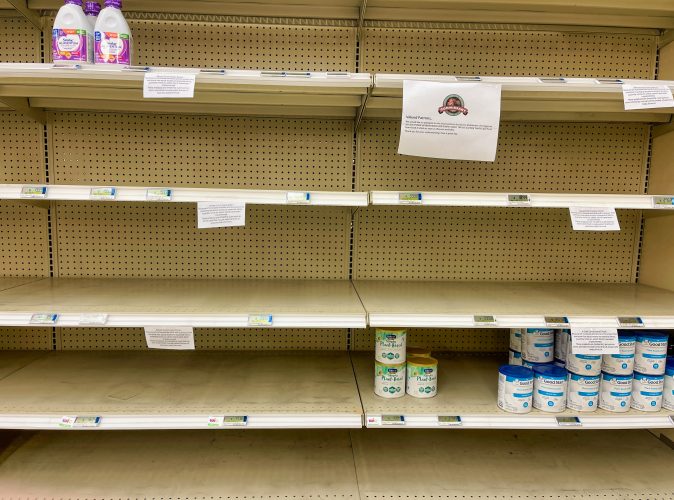FDA food chief resigns: Why has Frank Yiannas stepped down?
- Like
- Digg
- Del
- Tumblr
- VKontakte
- Buffer
- Love This
- Odnoklassniki
- Meneame
- Blogger
- Amazon
- Yahoo Mail
- Gmail
- AOL
- Newsvine
- HackerNews
- Evernote
- MySpace
- Mail.ru
- Viadeo
- Line
- Comments
- Yummly
- SMS
- Viber
- Telegram
- Subscribe
- Skype
- Facebook Messenger
- Kakao
- LiveJournal
- Yammer
- Edgar
- Fintel
- Mix
- Instapaper
- Copy Link
Posted: 26 January 2023 | Joshua Minchin (New Food) | No comments yet
A beleaguered FDA finds itself without a Deputy Commissioner for Food Policy and Repsonse, as Frank Yiannas announces his resignation to a shocked food and beverage industry.


Yesterday afternoon the food and beverage industry was rocked by the news that US Food and Drug Administration (FDA) Deputy Commissioner Frank Yiannas had resigned, with the Deputy Commissioner of Food Policy and Response set to leave his post on 24 February citing (among other things) concerns about the “decentralised structure of the foods program”.
In his resignation letter to FDA Commissioner Robert Califf, Yiannas highlighted both his own and his department’s achievements during his tenure. Yiannas paid tribute to the Administrations advancements to the landmark Food Safety Modernisation Act (FSMA), especially after “the agency experienced three separate lawsuits (before my arrival) for failing to achieve several Food Safety Modernization Act (FSMA) mandates, we made needed and strategic progress by tackling two of the most critical, complicated, and outstanding FSMA rulemakings by issuing a Final Food Traceability Rule and a new, proposed Agricultural Water Standard. Yiannas did however acknowledge that reductions in foodborne illness as a result of FSMA were yet to be achieved, though he claimed those two rules “will be gamechangers in allowing those reductions to become a reality.”
In addition to the advancement of FSMA, Yiannas also mentioned his work on the New Era of Smarter Food Safety. “We unveiled a new vision and blueprint for the next decade to modernise the way FDA does its food safety work and to bend the curve of foodborne illness once and for all in this country,” Yiannas said in his letter of resignation.
“And in two short years, we achieved an amazing amount of work. For example, we leveraged smarter tools for prevention used for the very first time in FDA’s food program, such as employing Artificial Intelligence to strengthen our ability to detect and prevent violative shipments of imported seafood from reaching the US consumer.
“We also expedited and facilitated the use of Tech-enabled Food Traceability to create a more transparent food system. And at a time of heightened food supply chain disruptions, we unleashed the power of data with the development of 21 Forward, a first of its kind food supply chain analytical platform to identify food facilities at greatest risk of food supply chain disruptions.”
Structural concerns
So why has the Deputy Commissioner resigned? Well, according to him, it was a decision that has been on his mind for some time.
“In February 2022, as you re-joined the agency, I shared with you that I was considering leaving, expressing my concern that the decentralised structure of the foods program that you and I both inherited, significantly impaired FDA’s ability to operate as an integrated food team and protect the public,” Yiannas told Califf.
He claimed that the infant formula shortage motivated him stay to stay in post, and instead “dedicated myself and my staff to doing all we could to help tackle this crisis.”
But with the Abbott facility back online and shortages easing, those structural concerns Yiannas had have bubbled back to the surface.


The infant formula shortage convinced Yiannas to stay on despite doubts over the FDA’s structure
While recommending some considerations for Commissioner Califf, Yiannas said that he “firmly believe the agency would operate more effectively and be better able to protect the American public from foodborne illness, with the creation of a more integrated operating structure and a fully empowered and experienced Deputy Commissioner for Foods, with direct oversight of those centres and offices responsible for human and animal foods. In this manner, she or he can more easily make the necessary changes that are needed to transform FDA’s Food Program for the 21st Century.”
Shining a spotlight
Concerns around how the FDA is structured are not new. Indeed only this week at Food Integrity US 2023, an expert panel debated the Administration’s current setup and asked whether change was necessary. Dr Stephen Ostroff, former acting Commissioner of the FDA, questioned the effectiveness of having a Commissioner that often specialises in the drug section of FDA heading up a team of Deputy Commissioners that include those specialising in medicine as well as food.
“When I was acting commissioner there was a Deputy Commissioner for medical products and tobacco, that happened to be (now Commissioner) Rob Calliff. It was important that that was the case, because I’m not an expert on the ins and outs of medical product oversight regulation and approval.
“But in our current circumstances and for most of the last 20 years the Commissioner and Deputy Commissioner do have that expertise. It seems redundant for there to be a Deputy Commissioner for medical products and tobacco, that then has the exact same expertise and really wouldn’t have much authority to do things.
“The opposite is the case for the food program. I think this issue of equity makes little sense to me. You do what’s right. If the food component is going to remain in the FDA it needs a single strong leader that is empowered to oversee the food activities within the industry.”
Those structural concerns were shared by Roberta Wagner, Vice President of Regulatory and Technical Affairs at the Consumer Brands Association, who also paid tribute to the work Frank Yiannas had undertaken in trying to modernise the FDA.
“I love what Frank Yiannas is trying to do – I love the Smarter Era of Food Safety and using technology to make the agency more effective.
“But until you address the infrastructure issues…how are you going to get the funding to ensure the federal government is doing its job effectively and efficiently?”
While those structural concerns are not new, they may receive unheralded attention in the days and weeks to come following Yiannas’ resignation. Perhaps, ultimately, that was his core aim, to spotlight integral issues that need attention from Federal Government to fix. Perhaps the burden of the infant formula really did take its toll. What is certain though, is Yiannas’ pride at executing this role for just over four years.
“I will always remain grateful for the opportunity to have served our one and only true boss, the approximate 340 million American consumers nationwide. Serving them has been a honour and privilege,” he concluded in his resignation letter.
Related topics
Related organisations
Consumer Brands Association, The US Food and Drug Administration (FDA)









